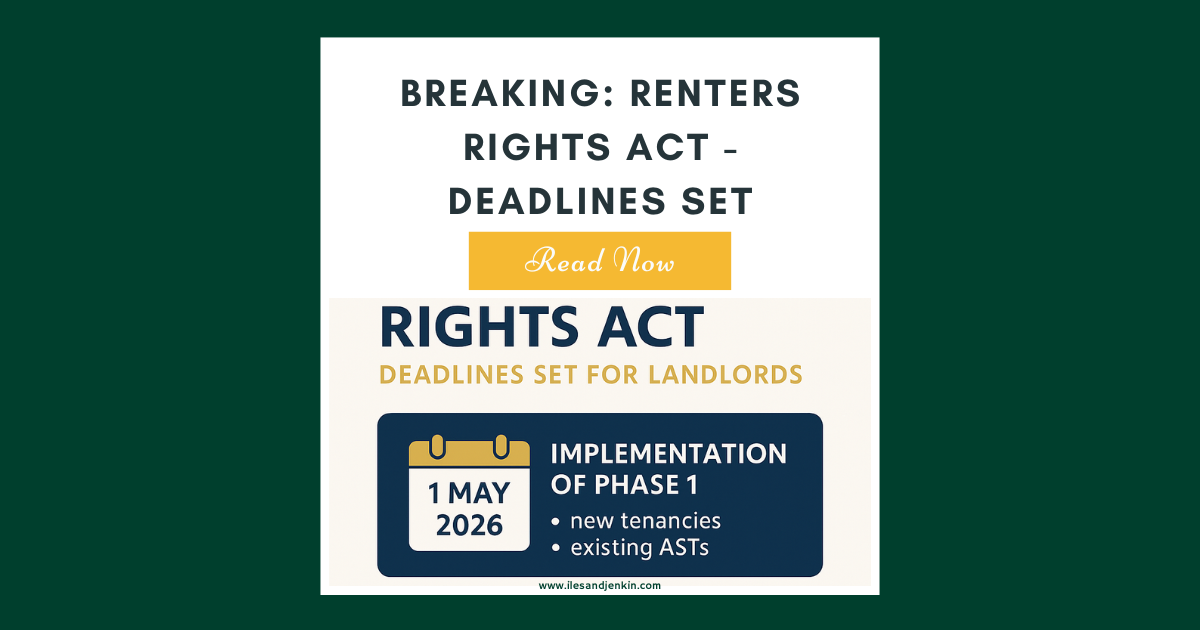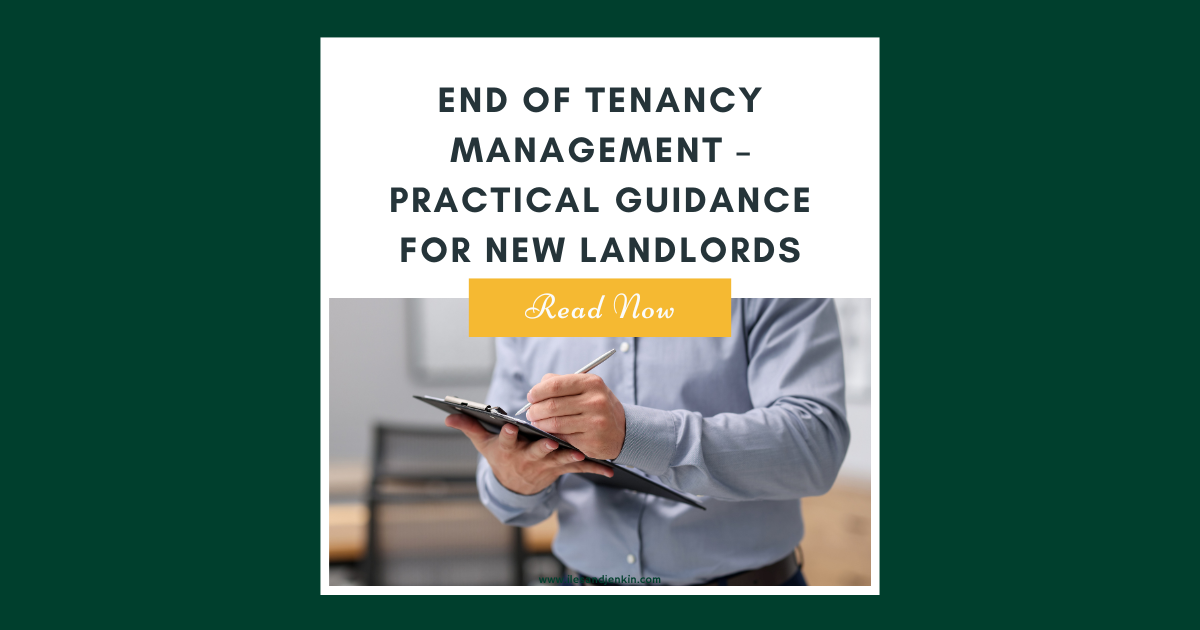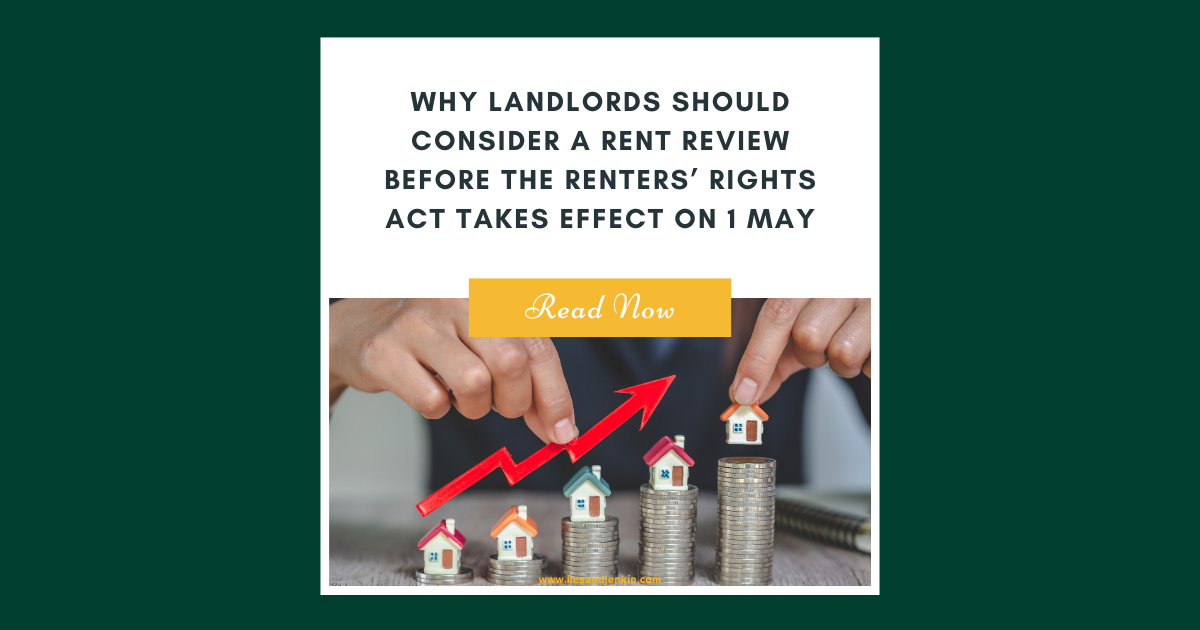Landlords: Your Deadline Is Set - Here’s What the Renters’ Rights Act Means for You
The long-awaited rental reform has finally secured its timetable. The government has confirmed that the first wave of changes under the Renters’ Rights Act 2025 will come into force on 1 May 2026.
✅ Why This Matters
From 1 May 2026, all new tenancies and all existing assured shorthold tenancies will convert into the new regulatory framework.
The reforms represent one of the biggest structural shifts for the private rented sector in decades.
Landlords and letting agents now need to review their practices, documentation and portfolio strategy without delay.
🛠 What’s Changing on 1 May 2026
Key measures that will apply include:
The abolition of the “no-fault” eviction regime under Section 21 of the Housing Act 1988.
Conversion of most tenancies to assured periodic tenancies, meaning fixed-term renewal strategies will change.
Stronger limits on rent increases: you will be restricted to once-a-year reviews via the prescribed procedure.
The banning of certain practices, including rental bidding wars and asking for more than one month’s rent in advance.
Prohibitions on discriminating against prospective tenants because they receive benefits or have children.
📋 Immediate Action Checklist for Landlords
Given the scale of change, here are the steps landlords should begin now:
Document audit – Review tenancy agreements, deposit paperwork, rent-increase templates and notices. Check they align with upcoming rules.
Policy update – Update your procedures, reference policies, advertising materials and tenant-onboarding to reflect the bans (bidding wars, excessive rent in advance, discrimination).
Portfolio review – Consider how the shift to periodic tenancies affects your traffic, turnover, refurbishment schedule and budgeting.
Communicate with your agent – If you use an agency, ensure they are prepared and compliant (Iles & Jenkin have you covered!). The quality of service will now matter more than ever.
Risk & compliance strategy – Explore how your property condition, documentation, and landlord-tenant communications align with the new expectations. Good landlords stand to benefit.
Training & systems – Consider staff training, updating software or systems to track new tenancy types, rent review restrictions, and enforceability.
Preventative Action - If you have a problem tenancy, consider taking action now.
🔍 Why This Is an Opportunity for Premium Landlords
As an agency specialising in high-spec, investor properties, this reform is a chance to reinforce your value proposition:
Compliance will become a differentiator. Landlords who are ahead of the curve will appeal more to informed tenants.
Effectively managed, high-quality homes will continue to attract stable tenants rather than high turnover.
Strong tenant relationships, clear documentation and proactive property management will protect reputations and portfolios as the regulatory pressure increases.
🧭 What Comes After Phase 1
This is only the beginning. Later phases will bring additional obligations:
Late 2026: a national Private Rented Sector (PRS) database and a Landlord Ombudsman.
Future (to be confirmed): reforms to the “Decent Homes Standard” in the PRS, and the extension of Awaab’s Law into private renting.
🔔 What You Should Do Right Now
Review your current tenancies: identify those in fixed-term arrangements and assess the impact of moving to periodic terms.
Set aside budget/time for documentation updates, learning of the new rules and preventative action for any tenancy that needs some attention.
Monitor government guidance closely: forms, notices and regulations will evolve as the regulatory deadline approaches (Iles & Jenkin will do this on our Managed portfolios behalf).
In Summary
For landlords and agents, the coming changes under the Renters’ Rights Act are significant - but manageable with the right preparation. The key date is 1 May 2026. Get ahead, stay professional, and use this regulatory shift to reinforce your position as a good Landlord.
If you’d like help navigating the transition - whether revising tenancy agreements, updating your procedures, or communicating this effectively to your portfolio - we’d be delighted to assist. Please call or email and book an appointment with one of our advisors.
Phone - 01934 512537
Email - lettings@ilesandjenkin.com



 By
By 
 posted by
posted by 


Share this with
Email
Facebook
Messenger
Twitter
Pinterest
LinkedIn
Copy this link